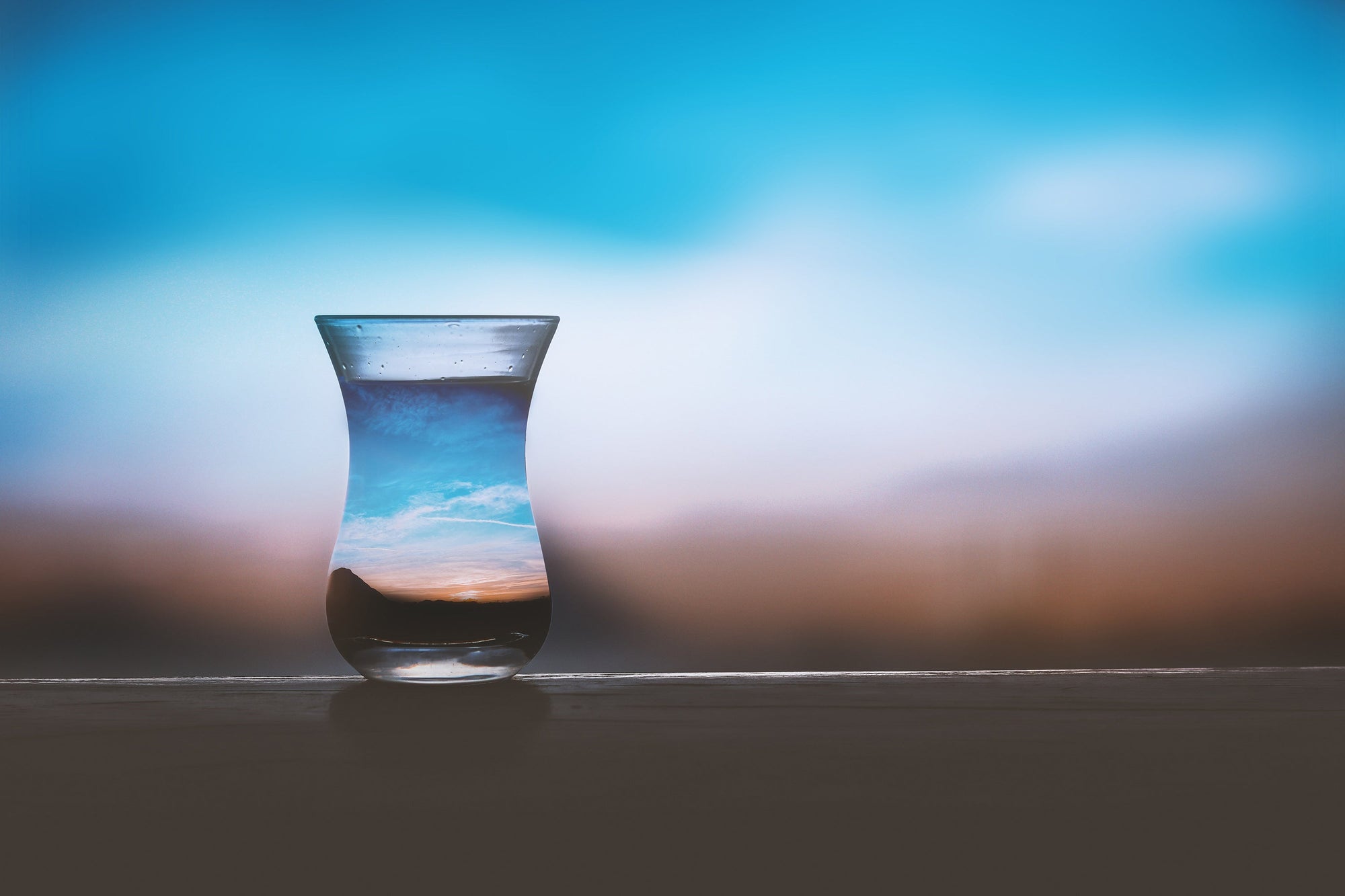And dangerous.
Even those of us who make our livelihoods around drinking water sometimes find we’ve skipped a few glasses during the day. It’s easy to do.
But why is it a big deal and how much do we really need in a day? Both answers might surprise you.
Why is drinking water important?
To answer that question, we first have to understand that ⅔ of our body is water. Not prioritizing drinking what makes up the majority of us, can have major impacts across all of our body’s systems, organs and processes. Here’s a list of just some of the things water is responsible for.- Transports nutrients/oxygen to cells
- Ensures adequate blood volume
- Protects against heat exhaustion
- Acts as insulation in the cold
- Regulates body temperature
- Cushions joints
- Suppresses appetite
- Assists in metabolizing stored fat
- Relieves fluid retention problems
- Reduces sodium buildup in the body
- Helps to maintain proper muscle tone
- Rids the body of waste and toxins
- Relieves constipation
- Helps convert food into energy
- Maintains strength and endurance
- Protects organs
- 0-1% - Thirst
- 2-5% - Dry mouth, flushed skin, fatigue, headache, impaired physical and mental performance
- 6% - Increased body temperature, rate of breathing and pulse rate; dizziness; weakness
- 8% - Dizziness, increased weakness, labored breathing with exercise
- 10% - Muscle spasms, swollen tongue, delirium
- 11% - Poor blood circulation, failing kidney function
On the flip side, it doesn’t take long to improve in those areas either. But many of us don’t think of that when we want to improve how we feel. We think about what we eat or how little we exercise, rarely how much (and what) we are drinking.
When you not only increase the volume of your daily water intake, but the quality of that water, you’ll see quick improvements across the health spectrum.
How much do I need?
The honest answer is we don’t know. Which we think is the best way to answer this actually. There is a lot of disagreement about the “8 glasses a day” recommendation from a few years ago with some saying that’s too much and others not enough. How much is based on legit science and how much is influence by other factors, interests and lobbies is anyone’s guess.So how do you know what you need to do? Simple, follow some basic guidelines and pay attention to your urine. No joke. It’s a great indicator for how well you are hydrating. Just watch the color. If it’s a dark yellow, you know you need more water. If it’s completely clear, you can slow down a bit. Maintain a lite yellow shade and you’re in the sweet spot.
As to the basic guidelines. Here are some suggestions.
- Have a large glass as soon as you get up. It helps activate the body and it’s a quick way to flush toxins which have built up overnight.
- If you’re a coffee drinker, have at least 1 glass for every cup of coffee. If it’s a big cup, drink the same volume of water.
- Watch the weather. You’ll need more water when it’s hot and also when it’s cold and dry.
- Drink a glass about 30 minutes before each meal. Doing so will suppress your appetite a bit and it is an easy way to schedule hydration.
- If you are thirsty, drink more than you need to simply quench the thirst. Thirst isn’t the first indicator of dehydration and can even mean you are up to 2 cups behind what you need.
- Exercise means more water. The American College of Sports Medicine recommends drinking approximately 16 oz water 2 hours before exercise and drinking 5-8 oz every 15-20 minutes during strenuous exercise.
- Men need more than women. The National Research Council uses a sliding scale of 1 milliliter of water for every calorie burned and an 8 oz glass is 236 milliliters of water. So the average male, who burns about 2,900 calories daily, needs 2,900 milliliters, or about 12 cups, of water each day. The average woman is about 700 calories less than that, so they recommend 9 cups.
- You can get water from what you eat and from non-water beverages (juices, soda, teas, etc), but use common sense. If you wouldn’t classify the food as nutritious, then it probably isn’t giving you much water either. If the drink is full of sugar (even the diet variety) or is a diuretic, it’s also not going to help.
- Same goes for water that is full of chemicals or void of minerals. Don’t let a good thing (increasing your water intake), also be a bad thing (increase your intake of toxins).




Comment
Recently because of health issues I began drinking a commercial brand of ph+electrolytes water. The results (not to mention the taste) were amazing. However, the cost plus guilt over putting so much plastic in landfills made me think about quitting. Then yesterday I discovered Vitev and am so excited to get started! Maybe I’ll even get my husband to drink more water.🙏🤞. Thank you!